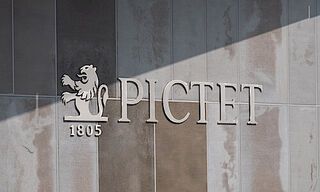The implosion of Credit Suisse's supply chain funds followed a two-year period of surge in these assets. The Swiss bank's growth occurred parallel to the wind-down of controversial GAM products steeped in the same assets.
The financial hit is to investors, but the reputational one sits squarely with Credit Suisse: the Zurich-based wealth manager overlooked countless warning signs before ultimately severing ties with British niche financier Greensill Capital last week.
Specifically, the reliance on individual insurers against default risks, mounting insolvencies at Greensill-backed companies, the circular financial ties between Softbank, Greensill, and the Credit Suisse funds, and the German banking regulator's probe of credit risks at a Bremen-based bank bought by Greensill in 2014.
Troubling Warning Signs
The Swiss bank moved quickly to unwind the knot with Softbank last summer, but «The Wall Street Journal» turned up another example: Greensill used Credit Suisse's funds to lend to another of its own backers, private equity firm General Atlantic. Australian investment banker Lex Greensill (pictured below) founded the eponymous firm in London in 2011 to specialize in financing trade receivables.
The red flags didn't prevent Credit Suisse veteran Eric Varvel from in December showcasing the funds, which by that time had bulged to more than $10 billion, as a cornerstone of its fixed income efforts. The bank showed little indication it would ditch the strategy in an ongoing review of its asset management arm.
Assets Ballooning
Credit Suisse partly unwound the ties between Greensill, Softbank, and the Swiss bank's supply chain funds after the U.S. outlet reported the circular flow of money: the Japanese investor stepped back from the supply chain funds, which were being sold to more than 1,000 institutional investors like Swiss pension funds.
The Swiss products proved immensely popular, buoyed by better returns than those available in more traditional instruments in a low- or negative-interest rate setting. The Credit Suisse funds ballooned from roughly $2 billion in 2018 to $10.1 billion last week.
Swiss Correlation
Credit Suisse is returning the cash out of the funds to investors, but the underlying value of funds' assets is unknown, amid question marks over Greensill's fate. An high-income fund, for example, is likely to steeped in dud assets.
What spurred the extreme growth in the funds, besides investors' hunt for yield that they couldn't get in the wider fixed income market? One possible answer is that GAM, a boutique Swiss asset manager, was extricating itself from Greensill just as Credit Suisse was massively ramping up. GAM dissolved roughly $7 billion in absolute-return bonds funds over 2017 and 2018 – virtually the same period Varvel and even Lex Greensill himself were showcasing supply chain at the Swiss lender.
Dubious Quality
finews.com cannot establish whether Credit Suisse took on any GAM assets, nor did either firm comment. Zurich-based GAM's problems with supply chain assets were brought to the fore by a whistleblower in 2017. GAM liquidated the funds and returned investors' money, but remains scarred by the episode. GAM only moved to sever ties to Sanjeev Gupta, a major Greensill client, last quarter, the «Financial Times» (behind paywall) reported.
Gupta, Britain's «savior of steel» for his investment in distressed industrial assets across Europe, the U.K., and Australia, leant heavily on Greensill for financing, likely to the detriment of both firms. Lex Greensill finagled GAM into setting up a supply chain fund exclusively for Gupta in 2017, which wasn't unwound until the fourth quarter of last year, the pink paper reported.
Massive Balance Sheet
What is clear is that Greensill's German bank's balance sheet swoll massively to 3.8 billion euros ($4.5 billion) in 2019, from several hundred million euros. Bafin, the German regulator, took control of the bank last week. The Aussie former investment banker's billion-dollar empire is reportedly poised to apply for administration in the U.K.

Credit Suisse reportedly pulled the plug on Greensill, setting the events of last week into motion, in large part over concern over its exposure to Gupta's business. This is the same concern that led GAM to shut the absolute-return line of funds which had invested heavily in Greensill products.
Lauded By Royalty – And Credit Suisse
Greensill, who was named «Commander of the British Empire» in 2017 for his services to the economy, enjoyed similarly hearty backing at Credit Suisse. The Swiss bank featured him the same year in its asset management magazine, «Scope».
One year later, a high-profile fixed income funds manager at Credit Suisse lauded supply chain funds: «A typical money market fund will underperform Libor, but supply-chain funds outperforms (sic). That has become a very interesting cash alternative for our clients.» While GAM extricated itself of the Greensill connection, Credit Suisse and its clients are left with the wreckage.
By Peter Hody and Katharina Bart


























